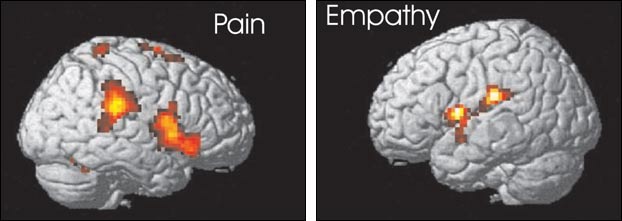RGacky3
DP Veteran
- Joined
- May 8, 2012
- Messages
- 9,570
- Reaction score
- 1,493
- Gender
- Male
- Political Leaning
- Socialist
Not as a metaphysical worldview ... they are still Atheists, they are still Marxists.
But People like Alain Badiou, Slavoj Zizek, and of coarse Jurgen Habermas (who wrote a book With Ratzinger on religion), are starting to realize the importance of the Judeo-Christian worldview in the creation and base of enlightenment thinking, everything from human rights, freedom and Democracy, to egalitarianism, universalism and socialism.
For the normative self-understanding of modernity, Christianity has functioned as more than just a precursor or catalyst. Universalistic egalitarianism, from which sprang the ideals of freedom and a collective life in solidarity, the autonomous conduct of life and emancipation, the individual morality of conscience, human rights and democracy, is the direct legacy of the Judaic ethic of justice and the Christian ethic of love. This legacy, substantially unchanged, has been the object of a continual critical reappropriation and reinterpretation. Up to this very day there is no alternative to it. And in light of the current challenges of a post-national constellation, we must draw sustenance now, as in the past, from this substance. Everything else is idle postmodern talk. - Jurgen Habermas.
I think he's right, Atheists tend to take forgranted the Christian worldview and try and saw off the ladder that they are standing on.
Pagan thought didn't have universal human rights, the Brotherhood of man, the rule of conscience and so on. All the seeds and basis of the enlightenment COME from the Christian worldview.
And now you have the classical enemies of Theism, both Atheists and Marxists, coming around, seeing the state of the west now, With its commodification of everything, the destruction of communal life from the Family, to the neighborhood to the Church, to the post-modern mess the west finds itself in where everything is tolerated other than values Beyond market values, and realizing, the west needs Christianity, the west Needs Jewish Misphat and Christian Agape, otherwise we end up back in a pagan, post-modern, idolatrous age where the market is the only value and where the egotism is the only end.
But People like Alain Badiou, Slavoj Zizek, and of coarse Jurgen Habermas (who wrote a book With Ratzinger on religion), are starting to realize the importance of the Judeo-Christian worldview in the creation and base of enlightenment thinking, everything from human rights, freedom and Democracy, to egalitarianism, universalism and socialism.
For the normative self-understanding of modernity, Christianity has functioned as more than just a precursor or catalyst. Universalistic egalitarianism, from which sprang the ideals of freedom and a collective life in solidarity, the autonomous conduct of life and emancipation, the individual morality of conscience, human rights and democracy, is the direct legacy of the Judaic ethic of justice and the Christian ethic of love. This legacy, substantially unchanged, has been the object of a continual critical reappropriation and reinterpretation. Up to this very day there is no alternative to it. And in light of the current challenges of a post-national constellation, we must draw sustenance now, as in the past, from this substance. Everything else is idle postmodern talk. - Jurgen Habermas.
I think he's right, Atheists tend to take forgranted the Christian worldview and try and saw off the ladder that they are standing on.
Pagan thought didn't have universal human rights, the Brotherhood of man, the rule of conscience and so on. All the seeds and basis of the enlightenment COME from the Christian worldview.
And now you have the classical enemies of Theism, both Atheists and Marxists, coming around, seeing the state of the west now, With its commodification of everything, the destruction of communal life from the Family, to the neighborhood to the Church, to the post-modern mess the west finds itself in where everything is tolerated other than values Beyond market values, and realizing, the west needs Christianity, the west Needs Jewish Misphat and Christian Agape, otherwise we end up back in a pagan, post-modern, idolatrous age where the market is the only value and where the egotism is the only end.

